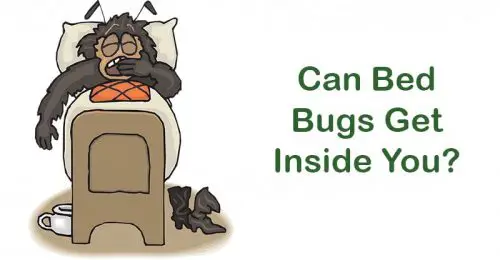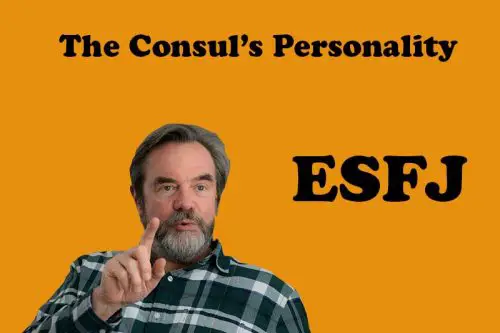What Is Cortical Spreading Depression And How to Manage It?: CSD which stands for Cortical Spread Depression is a hyperactive wave that is electrophysiological in nature and surges the inhibitory effect. Spreading depolarization refers to the phenomenon defined by the looks of the neuron and neuron depolarization waves that expanded throughout the cortex at a velocity of 1.5–9.5 mm/min.
CSD can be caused by a stressful environment and promotes neuronal death in energetic tissue. CSD has also been involved in migraine aura, where CSD is predicted to increase in very well-nourished tissue and is generally asymptomatic in certain conditions, although it can raise the chances of stroke development in migraine patients.

Inspiring your journey, one story at a time. #LifeFalcon.
Spreading depolarization in central nervous system cells that regulate life-critical features has been associated with an abrupt unexpected death in epileptic seizures through ion channel genetic variations such as those seen in Dravet syndrome, an extremely devastating form of childhood epilepsy that happens to pose an unexpectedly high risk.
Table of Content
Explaining the expansion of depression from migraine to congenital anomalies.
Spreading Depression (SD) is a neurophysiological medical condition characterized by sudden changes in intracellular ion gradients and prolonged depolarization of neurons. It results in loss of electrical impulses, changes in the neuronal structure, and changes in the vascular response. The role of CSD (Cortical Spread Depression) in patients that have migraines with no symptoms is not very well known. There are so many studies that have clearly indicated that the subcortical depression extents.
Spreading depression could very well be the reason for functional and neuroanatomical changes seen in patients that have migraines. The CSD mechanism frequently involves molecular mechanisms in cortical upregulation of the genes associated with the inflammatory activity (e.g. for cyclooxygenase-2, tumor necrosis factor-ш, interleukin-1β, gelatin, or metalloproteinase).
Excess of blood and the availability of metalloproteinase indicates the creation of different kinds of molecules (e.g. adenosine, nitric oxide, potassium) that later stimulate neurons. CSD afterwards is seen to activate the receptors from the dural region, in afterwards the CSD waves trigger the migraine which ultimately results in the late activation of trigeminovascular pathway interconnecting to the periphery nociceptive region.
CSD as a platform for testing the impact of alcohol on the brain.
What causes CSD is that it is triggered by frustration or in scientific terms, gradual changes in concentrations of potassium, hydrogen ions, as well as glutamate. The (CNS) Central Nervous System’s nociceptors are stimulated by CSD, all because of nitric oxide being released.
What causes CSD and how does it proliferate?
The basic processes involved in the initiation and spread of CSD are outlined schematically in CSD can be evoked by a wide range of stimuli in human or animal tissue or animal models which can involve local mechanical stimulation or damage, tetanus or D.C. Electrical stimulation, KCl, hypoosmotic medium, metabolic inhibitors, ouabain, glutamate receptor agonists, and endothelin.
An important related question is why specific brain locations may be CSD initiation sites, or whether they may be multifocal. In the context of pivotal brain damage in human beings, it is evident that the site of brain damage acts as the starting point for CSD, but in the uninjured brain, it is feasible that a simplistic decrease in the limit can lead to the activation of CSD at numerous locations or mechanisms and tools in pharmaceutical varieties.
Why is it so tough to cope with cortical spreading depression?
Depression, mainly CSD steals your strength, your optimism, and your motivation, rendering it impossible to take action that can help reduce stress. Occasionally, just looking at things you should be doing to make you feel better, like trying to exercise or catching up with friends, may seem wearying or difficult to implement into action.
The very first phase is always the most difficult. But taking a walk or going up to dance to your new favorite music, for example, is something you’ll have to right now. And it will improve your morale and energy considerably for several hours — long enough just to introduce a second recovery step, like cooking a morale-building meal or visiting an old colleague.
You may feel too tired to speak, embarrassed, or culpable of ignoring certain relations. But it’s just talking about the depression. Keeping associated with others and engaging in social events can make a significant difference to your mood and viewpoint. Achieving this is not a show of failure and will not mean for others that you are a liability.
Although you cannot force yourself into having fun or pleasure, even when you don’t like it, you can push yourself to do things. Maybe you are surprised that when you’re out in the world, you feel much better. Even if you don’t get up instantly, you can gradually feel more up-and-coming and enthusiastic when you take time for fun.
CSD is a disease, which covers the life and shadows it. Depression makes it worse-diabetes, sleep, pain, relationships, work-and prevails in primary care. Depression makes it worse. Under security networks, up to 4 out of 10 patients in our attendance rooms can have difficulties.
Why is it so difficult to treat depression inpatient healthcare?
CSD is a condition that internalizes. Under our radar slipped the insidious silence of depression. CSD people often talk less, shorter, and lighter. Several studies have shown that we miss it without routine anxiety testing. CSD is difficult to see by its very natural world.
Despondent patients don’t come to the hospital. Depressed patients are not necessarily going anywhere. CSD destroys inspiration, strength, and sleep, so working, playing soccer, or graduate ceremonies is difficult. We use follow-up appointments in primary care systems to promote health and wellness ideologies for patients. Depression does not complain to patients.
Just 11 percent had a medical problem of nearly 200 women with psychological depression at a university-based security-net clinic, with less than half discussing medical issues while visiting.
Depressed people are most likely to suffer from chronic pain conditions, headaches, fatigue and intensity issues, and vague diseases which are difficult to define and often lead to often unsuccessful diagnostic work-ups and binge care.
How to overcome CSD?
Depression is a medical disorder rather than a “lack of motivation.” It is a quick reaction to usual grieve and/or disparagement. It will help you learn the truth. We must not forget that not all depressed people are suicidal. You should also seek treatment, although you have no specific suicidal or self-harm comportment or are not as serious and consistent as your signs.
Use these coping skills daily:
Significance: Find little ways to help others
Serve something greater than yourself and find a specific sense. Recall the service must not be broad to count. Take that into consideration, “Success cannot be pursued as happiness: it must come … as an unintended side-effect of personal commitment to a course that is greater than one’s own.” —Viktor E. Frankl
Cheerful events: Schedule pleasant events or tasks
Don’t wait until you’re in the mood, for instance, allow yourself a 30-minute vacation or plan a healthy hobby every day. Remember to take the right attitude in these activities. Practice graciousness — take time to recognize what went well today, not just what went wrong. Consider maintaining a journal of gratitude. I know that you do not have to underestimate your struggles if you are grateful for your blessings.
Your goals: Find workable goals that will give a sense of achievement.
Most people feel bad when communicating about goals because they set unreasonably or unworkable targets. The goal is doable if it is:
- Maintained (i.e. not daunting)
- Sensible for you (not someone else)
- Something that you can influence (i.e. doesn’t depend on others)
- Quantifiable (i.e. you know whether that is done or not)
When something bad happens with your goal, implement a “What can I learn from it?” Also, be cautious when trying to compare your advancement to others. Generally, we try comparing our greatest weakness with the greatest strength of another person. This is unfair (and usually not accurate anyway).
Commitment: Stay in the current situation
This process is sometimes referred to as meditation. As best you can, try not to be in your head with self-judgment during your activities. You may not be able to turn off self-judgment, but you can notice it and bring yourself back to the present. Studies have shown that people with higher self-compassion also have greater self-esteem or self-confidence.
Pleasant Events: Schedule enjoyable activities or events
Don’t wait for you to be “in the mood.” For instance, give yourself a chance for a 30-minute “holiday” or schedule a healthy hobby every day. Just recognize to do these things with the correct mindset. Practice gratefulness — take time to understand what went well today, not just what went wrong.
Take into account keeping a diary of gratitude. Knowing that being thankful for your blessings doesn’t mean you ‘re going to have to give up on your significant issues.
Workout: And eat healthy food as well
Doing physical activity about five times a week (30 minutes of pop) can help your mental state substantially. Physical activity is a level of activity where it is hard to sing from your diaphragm while doing so. Start paying attention, too, to how the quality of diet or drink you consume affects your state of mind. You don’t have to make fad diets, but anyone would be depressed if they regularly binge on carbs, junk food, and energy drinks. Keep in mind the morality of moderate amounts.
What you’re eating has a direct impact on the way you feel. Decrease your intake of foods that may negatively impact your nervous system and mood, such as caffeine, alcohol, hydrogenated oils, and foods with high amounts of chemical additives or hormone levels (including certain meat products).
Boost the vitamins of your B. Inadequacies in B vitamins, such as folic acid and B-12, can lead to depression. For more, take a B-complex vitamin supplement or eat more citrus fruit, green vegetables, potatoes, cheese, and eggs.
Improve your confidence with meat rich in omega-3 fatty acids. Omega-3 fatty acids play a crucial role in the stabilization of mood. Fatty fish like salmon, herring, mackerel, anchovies, sardines, tuna, and also some cold-water fish oil supplements are the best sources.
Sleep frequently: Try to keep your sleep schedule regularly
Keep your equilibrium with not too little and not too much sleep. Staying late one night and then sleeping unduly the next day is a sure-fire way to feed depression. Also, don’t try to resolve late at night when your brain is half asleep.
As you start practicing these coping mechanisms, know because you’re on your way to having overcome depressive episodes.
Relationships: Focus on people who are raising you
Communicate regularly with others who bring you up (not people who put you down). While it’s alright to get some time on your own, create a compromise and don’t segregate yourself or the depression will languish.
Get a daily dosage of light from the sun every day
Light from the sun can significantly bolster your serotonin levels and improve your mood. Anytime feasible, get out during the daylight hours and expose yourself to the sun for at least ten minutes per day. Erase the sunglasses (but never look directly at the sun) and use the sunblock as required.
Take a lunch break, have breakfast outdoors, enjoy a brunch meal, or spend some time in the garden.
Almost double the advantages of light from the sun by trying to exercise outdoors. Try walking, wandering in a local park, or playing golf or tennis with a friend.
Increase the natural light and ventilation in your home and workplace by opening blinds and sheets and sitting near windows.
Destructive thought keeps challenging
Do you believe like you are helpless or ineffective? That bad things are going to happen and there’s not much you can do about it? That your situation is hopeless, huh? When these kinds of feelings inundate you, it is important to remember that this is a side effect of your mental illness and that these unjustified, fatalistic attitudes — referred to as cognitive misrepresentations — are not straightforward.
They don’t hold up when you examine them. But even so, it can be difficult to pass up. You didn’t crack out of this fatalistic state of mind by telling yourself to “just think positive.”
Often, it’s part of a lifelong pattern of thinking that’s becoming so instant that you’re not even fully aware of it. Somewhat less, the trick is to identify the kind of negative thoughts that sustain your depression, and to consider replacing them with a more structured way of thinking.
Depression is putting a negative spin on everything, including that of the way you see oneself and your prospects for the future.
Cognitive Behavioral Therapy (CBT)
There are several ways to deal with depression, and they are often best used in conjunction with each other. The general healthcare options are Cognitive Behavioral Therapy (CBT), antidepressant, and, in some serious cases, Electroconvulsive Therapy (ECT). Education and coping techniques are also essential when the ability to manage your depression.
CBT is an excellent treatment for depression, alone or in combination with medication. CBT involves learning the following:
- To counteract behaviors related to poor concentration and thoughts of death.
- Regulate negative thoughts that result in a loss of involvement and a sense of meaninglessness;
- Fight the feeling of fear and helplessness, and;
- The deficit of energy, even if it is not healthy and active.
CBT is often strongly advised when:
A competent, trained clinician with expertise in CBT is available or a person is ready to use CBT on the Internet.
- There is a clinical contraindication to the use of drugs.
- Depressed persons prefer CBT or iCBT.
- Depression is moderate, mild, or intense.
- The individual had a positive response to CBT in terms of planning.
The objective of a cognitive approach is to help individuals identify and resolve their contorted and adversely skewed thoughts. This approach identifies and difficulties the basic principles and convictions. By encouraging people to redefine their way of thinking about life, they can restore more adequately from mistakes and to recognize and take credit for the good things in their lives.
People learn that they will have some oversight over what is going to happen to them. As with behavioral strategies, having these skills decreases the depressive episode and resection of depression.
Electroconvulsive Therapy (ECT)
ECT is an effective method of depression therapy, especially if:
- Drugs, or combination drug and CBT treatment studies;
- The individual had a prior positive response to the ECT;
- There are influential somatic symptoms;
- There are psychotic symptoms;
- There are medical potential side effects to drugs.
- It requires dramatic improvements due to suicidal intent or refusal to eat;
- A person has encountered postoperative complications following CBT, multiple medications, or combination medication and CBT treatment studies.
While most people are afraid of ECT, this technology is probably the safest and most effective medical treatment for severe depression, although there may be some memory-related side effects. ECT has a faster effect than antidepressant drugs, and CBT and antidepressants remain useful adjuncts to treatment as they can help prevent relapse after ECT has been completed.
ECT involves the application of a short electrical current to carefully selected scalp sites. These electrical currents, which are prescribed by a psychiatrist and anesthetist, cause a minor seizure in the brain. Before the process, the person is given a short-acting general anesthetic and a pain reliever to reduce the awareness of the process and to prevent a physiological seizure.



















